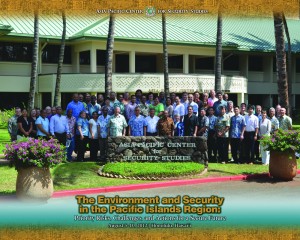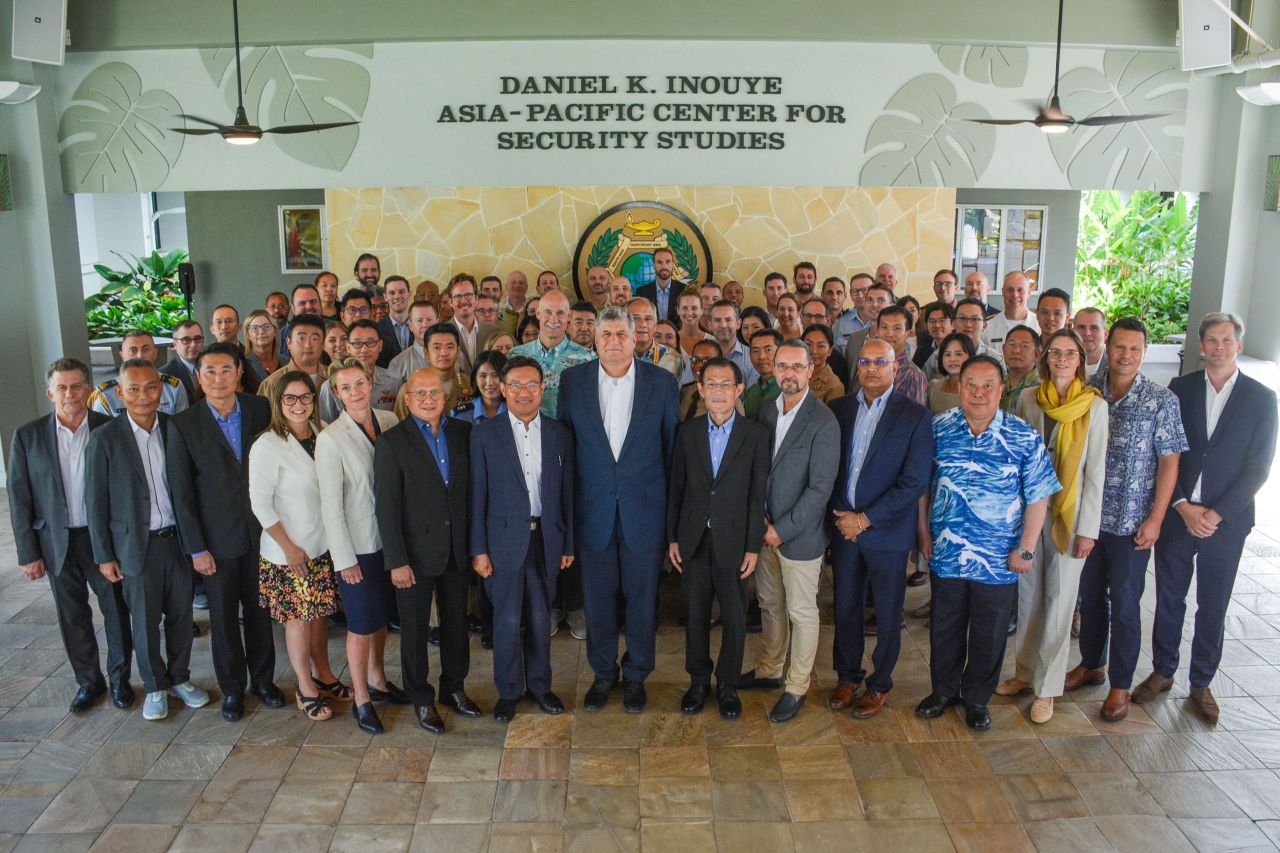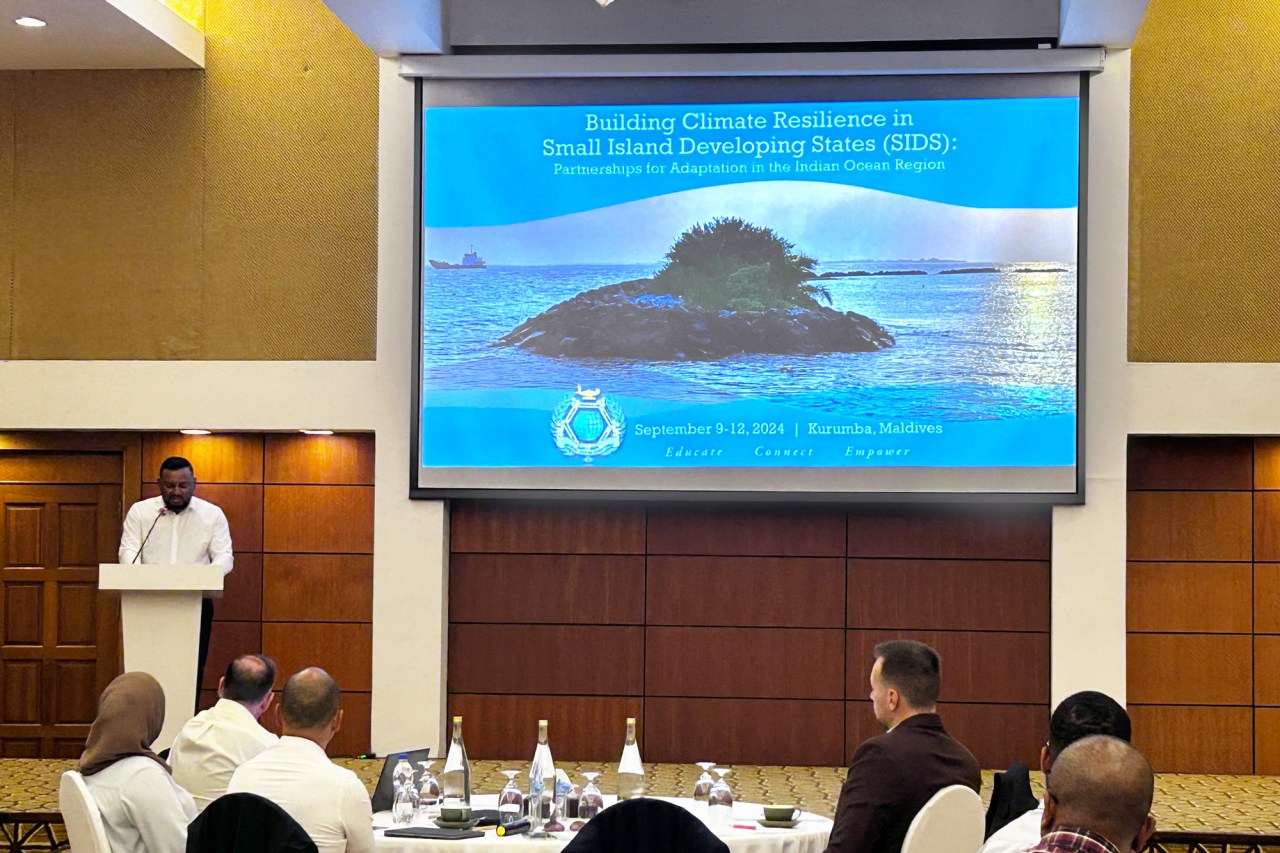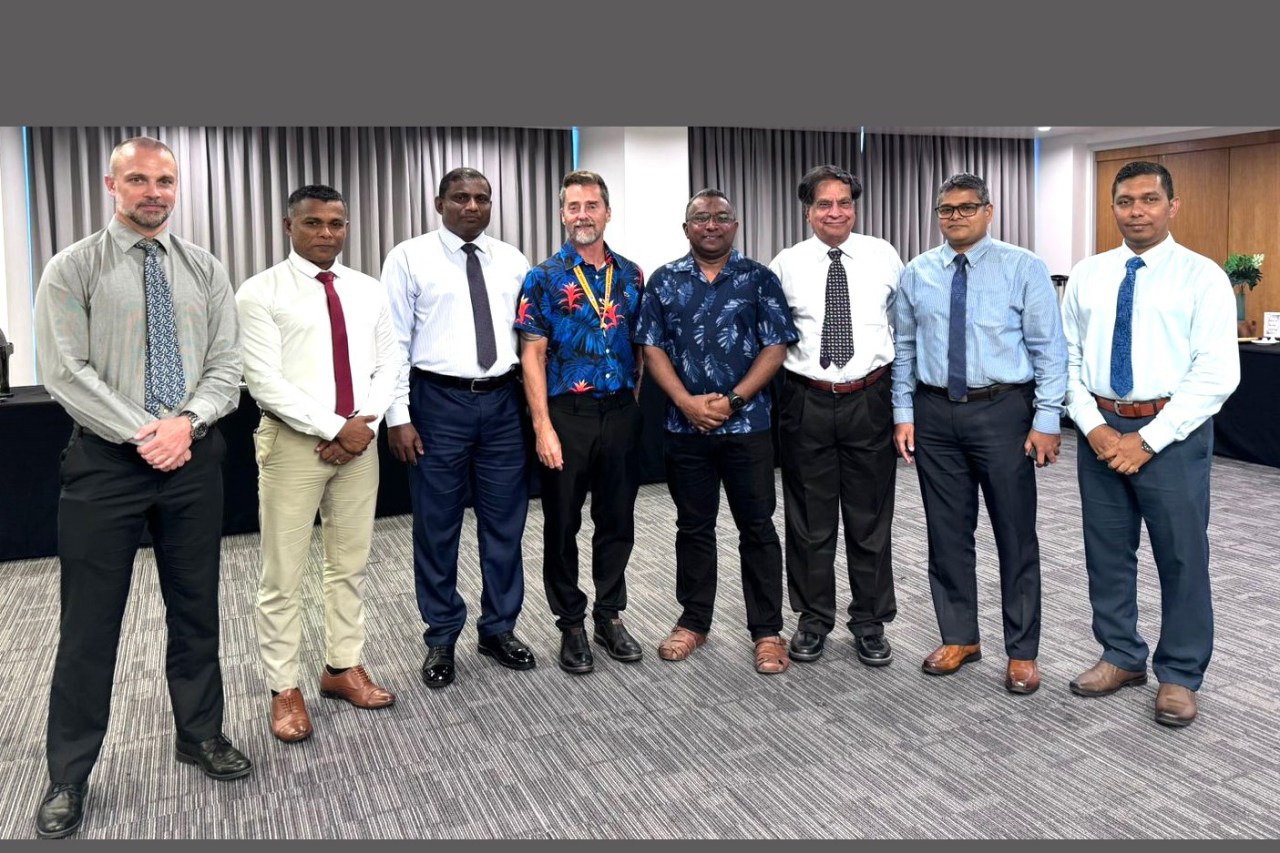 The impact of environmental changes is keenly felt in the Pacific Islands region. How it impacts security and how island nations can better work together to develop a sustainable future was the topic of a recent workshop held at the Asia-Pacific Center for Security Studies.
The impact of environmental changes is keenly felt in the Pacific Islands region. How it impacts security and how island nations can better work together to develop a sustainable future was the topic of a recent workshop held at the Asia-Pacific Center for Security Studies.
“These effects will change the security landscape of the Pacific in greater ways than we imagine as we will become more vulnerable economically, socially and politically,” said Mr. Peter Forau, Director General of Melanesian Spearhead Group Secretariat in a statement read at the opening of the event.
More than 45 government and non-government organization officials attended the five-day workshop entitled ‘The Environment and Security in the Pacific Islands Region: Priority Risks, Challenges, and Actions for a Secure Future’ which kicked off on Aug. 5.
According to one participant, “The workshop really brought out environmental issues that were not really flagged in my security consciousness. I am a security practitioner focused on traditional security challenges, however, the workshop allowed me to dedicate a week to sit down and contemplate the emerging environmental security issues.”
At the end of the workshop, participants synthesized their many recommendations into a special presentation to local officials and experts. In addition, distinguished alumni from the region were able to view the presentation and ask questions via Video-Teleconference.
Some of the key challenges identified by the group include: land degradation, pollution, resource extraction, reef destruction, loss of bio-diversity, cultural degradation, and more.
Climate change is a complex issue that requires new thinking and bold leadership.
The group recommended a “shift in thinking” or viewing the Pacific Islands region through the climate change lens.
They recommended changing how they themselves talk about the region: shifting from the terms “vulnerability” to “value.” The Pacific Island region is a valuable eco-system for the world with resources that are shared by all. As one participant stated: it’s not just about the fact that tuna is there — the tuna is there because of the environment. This makes the area as important to the world similar to the rain forests of South America.
Some of the recommendations presented included:
- Improving cooperation, collaboration and coordination by improving the effectiveness of regional institutions;
- Improving access to resources to improve research, education and awareness;
- Promoting investment in sustainable developments and green economies; and
- Engaging other countries on the Pacific Rim on common issues.
Education and community outreach was also a discussed at length. “We need the traditional values of our elders and the innovative minds of the youth,” said one participant. “Senior officers and high ranking citizens have identified the environmental issues; they’ve had their say now let us include the community for a wider approach. The elders are our past and we need the past to better understand the future, the future is with our youth. Merge the two very different people together to have a united front against climate change and other environmental issues.”
Workshop Academic Leader, Dr. Alfred Oehlers, felt the workshop was very timely and effective.
“Participants addressed these issues in a frank and robust manner and with a level of energy and passion that was unsurpassed,” said Oehlers. “Coming just ahead of the 43rd Pacific Islands Forum Leaders Meeting in the Cook Islands, the workshop was timely. Many participants indicated the insights gained from discussions will be extremely useful as their governments and organizations prepare for this important meeting.”
-END-
[nggallery id=25]









Leave A Comment